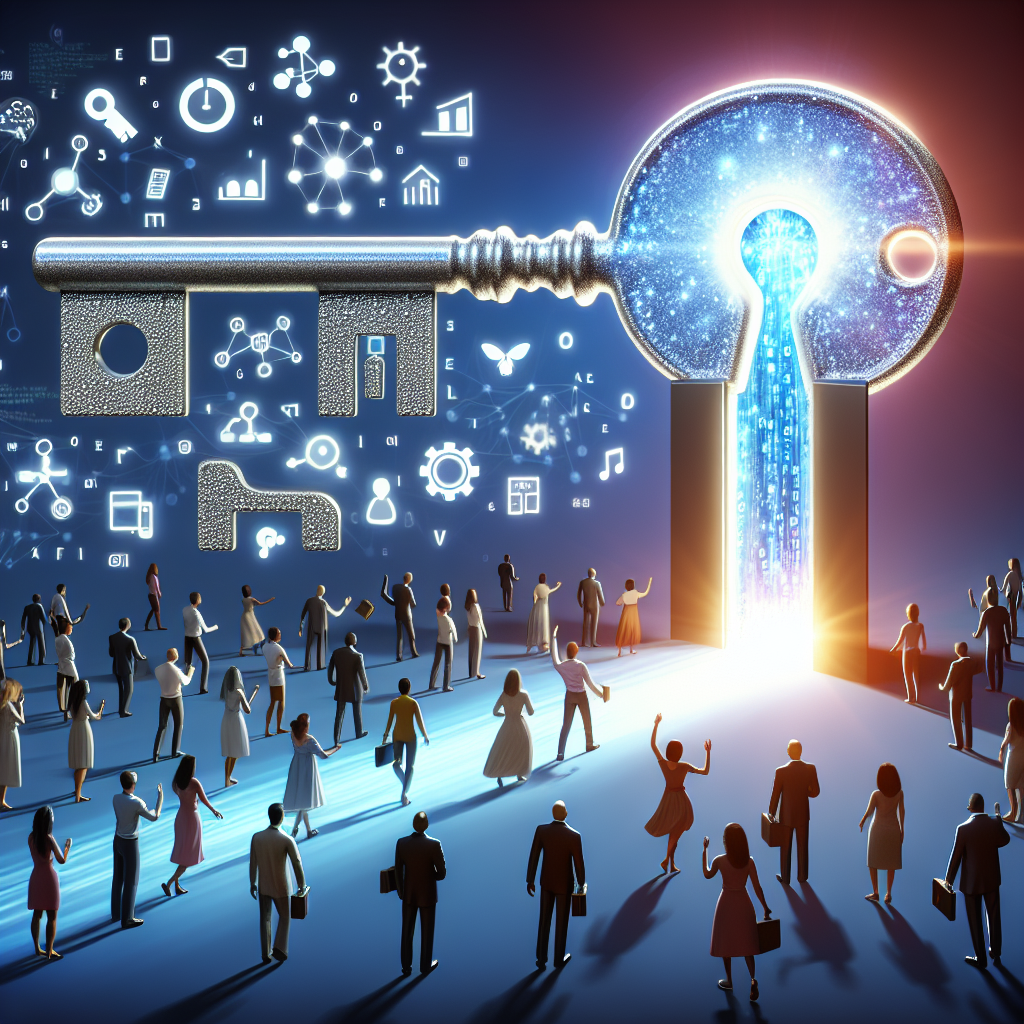In recent years, the field of artificial intelligence (AI) has seen exponential growth and innovation. From self-driving cars to personalized recommendations on streaming services, AI has become an integral part of our daily lives. However, there is a growing concern about the technology gap that exists between those who have access to AI tools and those who do not. This gap is not just about access to the latest gadgets, but also about the ability to understand, create, and harness the power of AI.
Democratizing AI is the key to closing this technology gap. By making AI more accessible and understandable to a wider range of people, we can ensure that everyone has the opportunity to benefit from this transformative technology. In this article, we will explore the importance of democratizing AI, the challenges that need to be addressed, and the potential benefits of making AI more inclusive.
Why is democratizing AI important?
1. Inclusivity: One of the main reasons why democratizing AI is important is to ensure that everyone has the opportunity to benefit from its potential. AI has the power to revolutionize industries, improve healthcare, and enhance education. By democratizing AI, we can ensure that these benefits are accessible to all, regardless of their background or resources.
2. Innovation: AI has the potential to drive innovation and create new opportunities for businesses and individuals. By democratizing AI, we can unleash the creativity and talent of a wider range of people, leading to the development of new AI applications and solutions that can address some of the world’s most pressing challenges.
3. Ethics and fairness: AI has the potential to perpetuate biases and inequalities if not developed and used responsibly. By democratizing AI, we can ensure that a diverse group of people are involved in its development and deployment, leading to more ethical and fair AI systems.
Challenges in democratizing AI
While there are many benefits to democratizing AI, there are also several challenges that need to be addressed in order to make this vision a reality. Some of the key challenges include:
1. Access to data: AI systems rely on vast amounts of data to learn and make predictions. However, not everyone has access to the data needed to train AI models. This can create a barrier to entry for individuals and organizations who want to develop AI solutions.
2. Technical skills: Developing AI models requires a certain level of technical expertise. Many people do not have the skills or knowledge needed to work with AI tools and technologies. This can create a divide between those who are able to harness the power of AI and those who are not.
3. Bias and fairness: AI systems are not immune to bias and discrimination. If AI tools are developed and deployed by a homogenous group of people, they may perpetuate existing biases and inequalities. It is important to involve a diverse group of people in the development of AI systems to ensure that they are fair and ethical.
Benefits of democratizing AI
Despite the challenges, there are many benefits to democratizing AI. Some of the key benefits include:
1. Innovation: By making AI more accessible and understandable, we can unleash the creativity and talent of a wider range of people. This can lead to the development of new AI applications and solutions that can drive innovation and create new opportunities for businesses and individuals.
2. Inclusivity: Democratizing AI ensures that everyone has the opportunity to benefit from its potential. This can lead to more equitable access to AI tools and technologies, as well as the benefits that they provide.
3. Ethics and fairness: By involving a diverse group of people in the development of AI systems, we can ensure that they are fair and ethical. This can help to address some of the biases and inequalities that exist in the current AI landscape.
FAQs
Q: What is AI democratization?
A: AI democratization refers to the process of making AI tools and technologies more accessible and understandable to a wider range of people. This includes providing access to AI tools, training programs, and resources that can help individuals and organizations develop AI solutions.
Q: How can I get involved in democratizing AI?
A: There are many ways to get involved in democratizing AI. You can participate in AI training programs, join AI communities and organizations, or develop your own AI solutions. By learning more about AI and getting involved in the AI community, you can help to make AI more inclusive and accessible to all.
Q: What are some examples of democratized AI tools?
A: There are many examples of democratized AI tools that are available today. These include open-source AI frameworks like TensorFlow and PyTorch, as well as AI platforms like Google Cloud AI Platform and Microsoft Azure Machine Learning. These tools provide access to AI technologies and resources that can help individuals and organizations develop AI solutions.
In conclusion, democratizing AI is essential for closing the technology gap and ensuring that everyone has the opportunity to benefit from this transformative technology. By making AI more accessible, understandable, and inclusive, we can drive innovation, promote fairness and ethics, and create new opportunities for businesses and individuals. It is important for individuals, organizations, and policymakers to work together to address the challenges and harness the potential of AI for the benefit of all.

